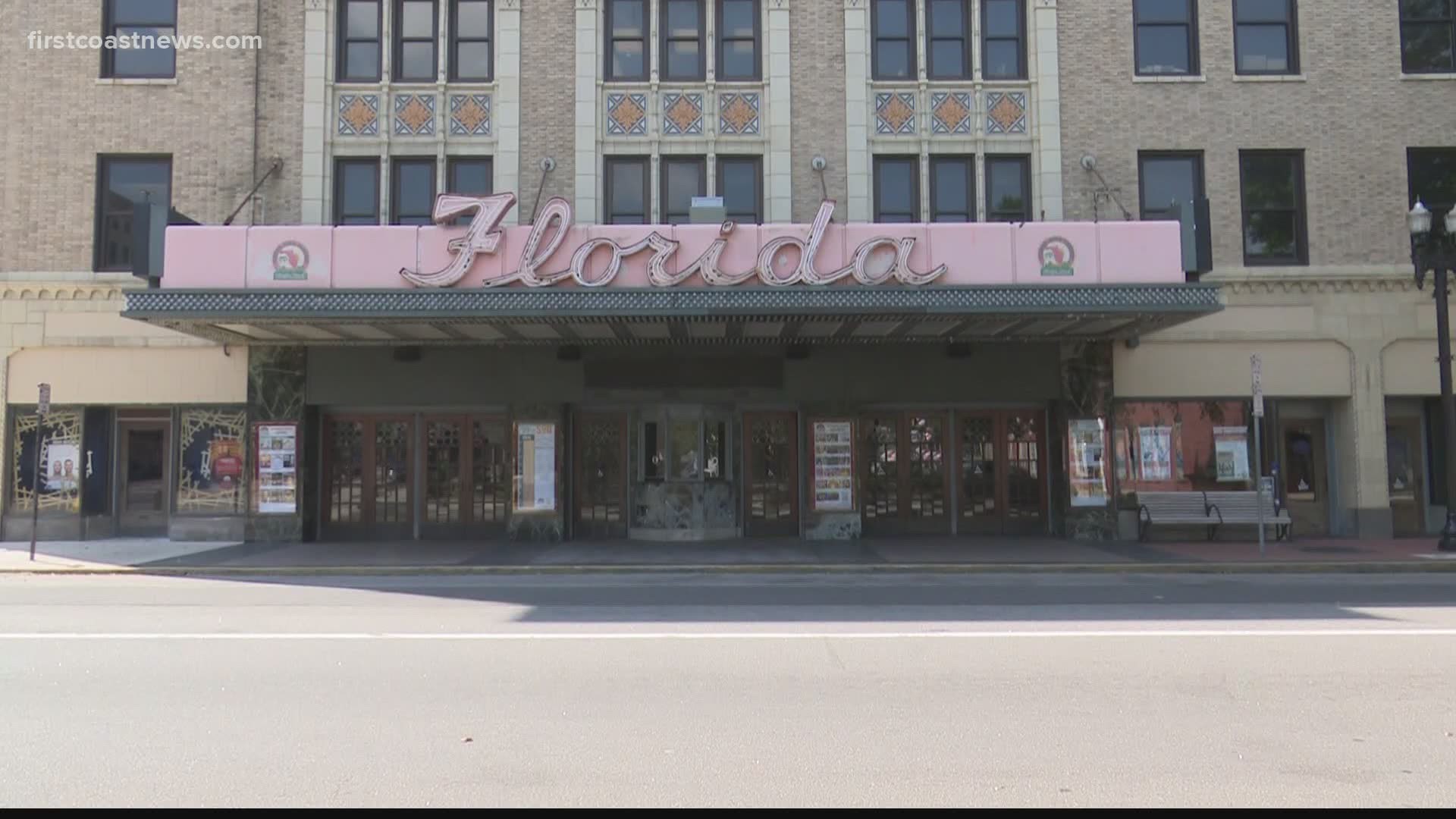JACKSONVILLE, Fla. — Small venues where live performances took place are hurting during the COVID-19 pandemic.
"We have been closed since March 12," Numa Saisselin said. He is the President at the Florida Theatre in Jacksonville.
The stage and its seats have been empty since COVID-19 took center stage.
"It’s been 22 weeks since our last show," Saisselin said.
The theater has been able to keep 20 full-time workers on-board, but "119 of our show workers are out of work," Saisselin noted. "So all the stagehands, bartenders, security workers, front box office people who would normally work have been out of work."
Small, live performance venues are hurting because they can’t be open during the pandemic.
"Music venues across the county, especially the small independent, local venues were the first to close and they’re going to be the last to open," Ryan Murphy said. He used to oversee the St. Augustine Amphitheater and now works in Alabama, designing an amphitheater in Huntsville. Murphy is still very tied to the music industry in Florida.
"The prediction is 90 percent of local independent and smaller venues across the country will close forever if they don’t get the support needed," he said.
The National Independent Venue Association with thousands of independently-operated music venues are pushing for something called the Save Our Stages Act. It’s a multi-billion dollar bi-partisan relief package before Congress that would help small independent venues with rent, paychecks, debt and other costs brought on by COVID-19.
"As of right now, all these venues are stacking up their bills," Murphy said. "On a weekly basis, several venues across the country shutter because they just can’t pay the bills."
Reportedly, around 600 big-name supporters are behind the act too.
"Every artist you love," Murphy said, "whether it be Elton John, Foo Fighters, or John Legend, they all started in small independent clubs and venues."
From small stages to larger ones like the Florida Theatre, their common thread is they don’t have massive corporate ownership. People’s livelihoods and the life of live performances are on the line.
"It’s of curses necessary for the public health and we’re happy to do it," Saisselin said, regarding being closed to the public, "but that’s an awful lot of people out of work. We need the venues to come back when this is all over."

